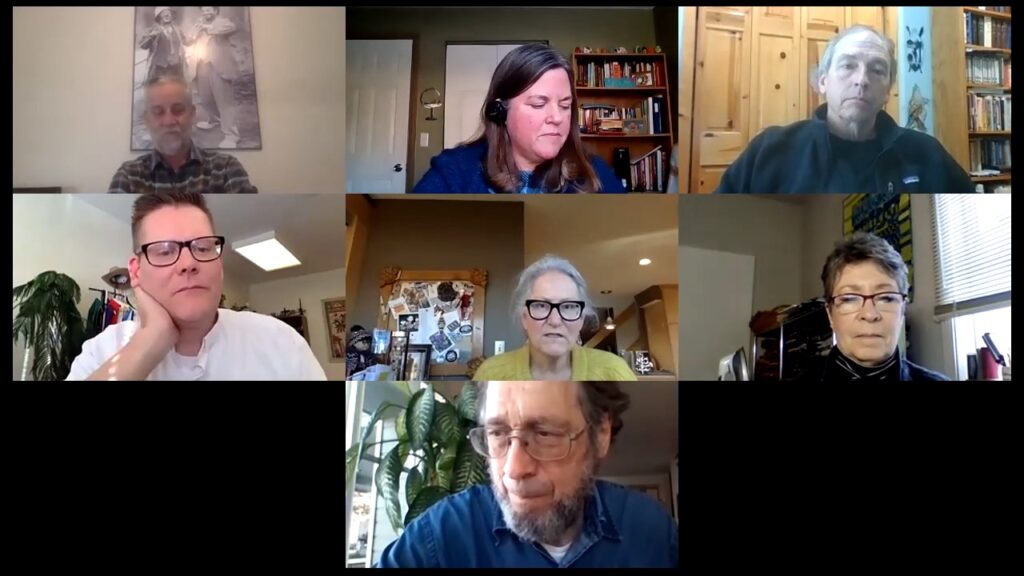Pastor’s group examines racism from a stages of grief view
I feel fortunate to be part of a small group that is in the midst of a year-long effort to study issues of race in our society and our own lives. We call this group, which includes seven pastors, Living Into Inclusivity.
A few weeks ago, we met for the fifth time in a Zoom meeting that was recorded so that others in the community could see the sausage being made in our discussions. Our topic this month was a challenging one — looking at racism using the prism of Elisabeth Kubler-Ross’s five stages of grief — denial, anger, bargaining, depression and acceptance.
As a guide to our discussions, we are using The Racial Healing Handbook by Anneliese Singh.
The conversation, which has been posted on YouTube, reveals how we struggle on an individual level with looking at the issue of race from different angles. I don’t think any of us had imagined looking at race from the perspective of grief.
Several of us pointed to feeling a deep sense of sadness (a sort of depressive state) as a key theme in thinking about the ways in which people of color get treated differently so often in this society.
Events since our discussion has added some further evidence that as a society, we have more work to do. Just compare the police response to the pro-Trump riot last week with scant arrests and a virtually nonexistent police presence to the heavy police presence and hundreds of arrests in D.C. during the nonviolent Black Lives Matter protests demanding equal justice. White bodies are not seen as the threats that Black bodies are in this country.
One of the themes that emerged from our group discussion was how exhausting and overwhelming several of us found it to process what’s happening with racial injustice. Karen Rutherford, who led our discussion, talked about being “caught between two worlds” in that she has a group of friends on the liberal side and she feels like she’s “not woke enough” and other friends who are more conservative who would rather not talk about the issue.
That is emblematic of the political divide in this country and extreme positions on both ends of the spectrum.
We also wrestled with how to apply the language of the five stages of grief. Does acceptance mean just acquiescing to racism or does it mean that we acknowledge the truth that treatment of racial minorities can be quite different. We seem to have landed on the latter definition.
The point of our conversations is, after all, to become more aware of the advantages we have as part of the dominant culture in this country and do our best to educate ourselves about what life is like for folks who aren’t like us.
We discussed the roles we do or think we ought to be playing when it comes to addressing racism. Laura Shennum, the pastor at Cascade Unitarian Universalist Fellowship, talked about her role of trying to help see the humanity in each other.
John Coleman Campbell, pastor at First United Methodist Church, pointed out that the welcoming attitude that Shennum expressed doesn’t always match high ideals. There’s a tendency that “we’ll welcome anyone who thinks like us.” That sense of candor and vulnerability is something that I cherish in this group. People aren’t afraid to share candidly.
Campbell said he views his role as listening to others and “not making people wrong,” which is to say he attempts to be less judgmental and hopes others will do the same.
Dave Haven, of Celebration Lutheran, talked about the value of paying close attention to what’s happening around the community and incorporating lessons in his sermons and other pastoral work.
This group was started not to “solve” anything but just to have the discipline to dive into a difficult subject and bring our best thinking and open minds to it. You can listen to our conversation by accessing YouTube and searching for Living Into Inclusivity and clicking on discussion five.

